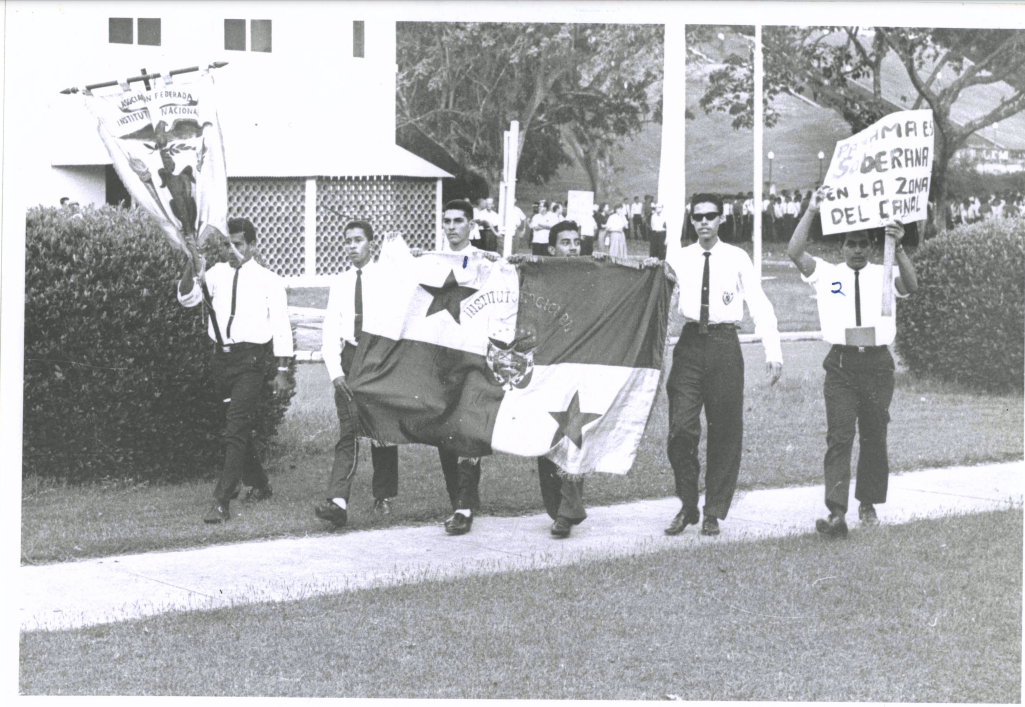Beyond “Latinx Heritage Month” | Alejandra Mejía

Cover photo by Luis Hernández. / Mural signed by artist.
What does it mean to celebrate Latinx Heritage Month in the context of our current political climate? Ours is a climate where the nation’s leader consistently spews hateful anti-immigrant rhetoric; where migrants are detained in concentration camps and children are separated from their families and incarcerated in cages; where a manifesto that speaks of the “Hispanic invasion of Texas” is released minutes before the largest massacre of Latinxs in United States history. And, of course, this current climate is nothing new or exclusively attributed to the Republican Party or rising White nationalism. The Obama administration hit a record of 409,849 deportations in 2012, a figure that highlights the complicity of the Democratic Party within a racist, xenophobic system that functions as it was supposed to from its inception.
To begin grappling with the immense contradiction that exists between celebrating Latinx Heritage Month (which was co-opted into a marketing opportunity since its inception) and the way Latin American migrants and U.S. Latinxs are increasingly targeted and systematically oppressed, we must further historicize this nation’s system. We must actively question one-dimensional constructions of both “American-ness” and “Latinidad,” contextualizing them within the broader system of racial capitalism, to move beyond celebrations of diversity that are often divorced from the history and reality of migration.
As a starting point, it is a well-known fact that this nation was built on the genocide and enslavement of Indigenous and African people, legacies of injustice and pain that persist until this day in varying forms. In Black Marxism, influential political theorist Cedric Robinson demonstrates that capitalism and racism grew simultaneously “to produce a modern world system of ‘racial capitalism’ dependent on slavery, violence, imperialism, and genocide” where the tendency is “to exaggerate regional, subcultural, and dialectical differences into ‘racial’ ones.” Historically, racial constructions and myths have been used to oppress systematically, often through the establishment of racial laws, including immigration policies. On a global scale, racial capitalism has exacerbated into the present global order where countries in the Global North are increasingly militarizing their borders and arming themselves against the mobility of largely racialized migrants from the Global South.
What are some of these racialist constructions/myths? How have they historically been translated into U.S. racial laws? And how do they affect Latin American migrants and U.S. Latinxs specifically?
Here is just one example: In response to the large influx of Mexican migrants during World War I, various Americanization programs were established to strip migrants of their Mexicanidad (succinctly, “Mexican-ness”) and to mold them into “modern,” “productive,” and “loyal” American citizens. The Home Teacher Act of 1915 was one such Americanization program that manipulated the notions of race, citizenship, and gender from inside the Mexican home, intentionally promoting an Americanized way of life.
Americanist teachers infiltrated the homes of Mexican migrants to implant them with the customs and language of a culture which was not their own. This program was an outright attempt at extinguishing what were considered to be the “alien” practices of Mexican migrants and forcefully assimilate them into American culture and Anglo-Protestant values by teaching them English, changing their diet, and exposing them to methods for decreasing family size.
Through the establishment of Americanization programs, White Americanists cast off an aura of racial superiority, claiming that their practices and culture were better, cleaner, and healthier. The “other” culture was perceived as flawed and lacking the “standards” for becoming true American citizens.
The exploitation of Mexican laborers went hand-in-hand with forceful attempts at deculturating their Mexicanidad. Although Americanists claimed to be “helping” Mexicans assimilate, the fact of making them perform what were considered to be “lesser” jobs set up a hierarchy in which Mexican migrants were the lesser of the two. In her essay, “In a Race all of Their Own: The Quest to Make Mexicans Ineligible for U.S. Citizenship,” Natalia Molina states that “created white identity” has “real consequences for the distribution of wealth, prestige, and opportunity.” Racial constructions were deliberately employed to create a hierarchy where the social status and wealth of Mexican migrants could never match that of the White American citizens, in tandem with Robinson’s theory of racial capitalism. Moreover, teaching Mexican migrants how to speak English was a tool for advancing American society and White superiority, since a common language in the job meant industrial prosperity for White industrial elites.
In conclusion, my goal is that by highlighting one specific history, we may be inspired to think critically of our individual stories, present political climate, and larger system. Umbrella terms like “Hispanic,” “Latino,” and “Latinx” attempt to label an immensely varied group of people living in the United States, homogenizing differences in countries of origin, reasons for migrating, and historical experiences. This ethnic label, while sometimes a tool for unity, can also serve as a reductive ethnic category that overlooks unique cultures, experiences, and various levels of oppression and privilege (such as obscuring the experiences of Afro-Latinxs). I hope that we continue to shed light on the history of U.S. racial laws and immigration policies to unearth the root causes of various forms of oppression. And that, in this process of excavation, we intentionally center the voices and analyses of those directly affected.
Alejandra (Ale) Mejía is the Chief Editor of Migrant Roots Media. Her politics and commitment to migrant justice are largely informed by her lived experiences as a working-class Central American immigrant in the U.S. South. She is an Assistant Editor at Duke University Press, where she acquires books in Latine/x history, and an editor for Tricontinental: Institute for Social Research.





